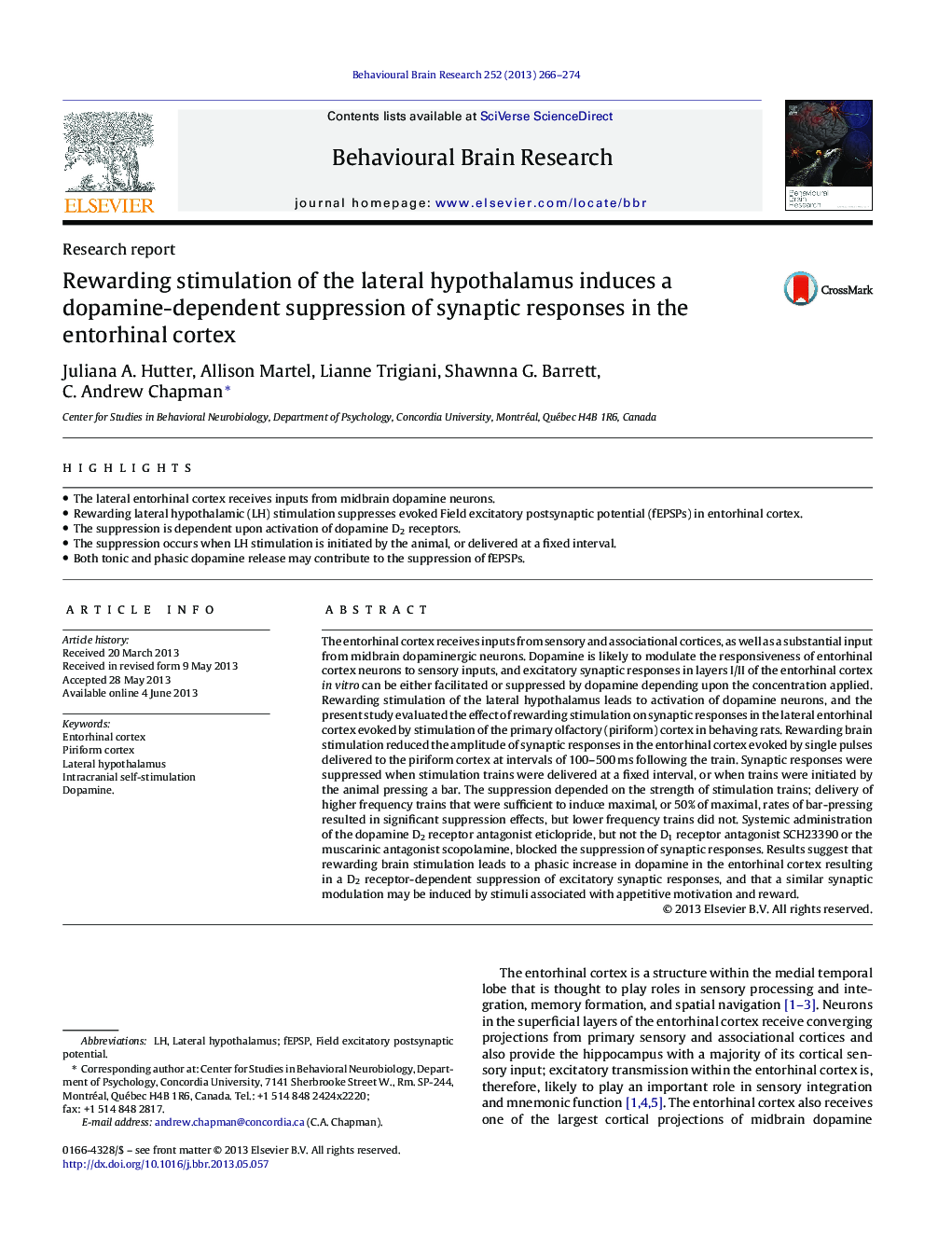| Article ID | Journal | Published Year | Pages | File Type |
|---|---|---|---|---|
| 4312616 | Behavioural Brain Research | 2013 | 9 Pages |
•The lateral entorhinal cortex receives inputs from midbrain dopamine neurons.•Rewarding lateral hypothalamic (LH) stimulation suppresses evoked Field excitatory postsynaptic potential (fEPSPs) in entorhinal cortex.•The suppression is dependent upon activation of dopamine D2 receptors.•The suppression occurs when LH stimulation is initiated by the animal, or delivered at a fixed interval.•Both tonic and phasic dopamine release may contribute to the suppression of fEPSPs.
The entorhinal cortex receives inputs from sensory and associational cortices, as well as a substantial input from midbrain dopaminergic neurons. Dopamine is likely to modulate the responsiveness of entorhinal cortex neurons to sensory inputs, and excitatory synaptic responses in layers I/II of the entorhinal cortex in vitro can be either facilitated or suppressed by dopamine depending upon the concentration applied. Rewarding stimulation of the lateral hypothalamus leads to activation of dopamine neurons, and the present study evaluated the effect of rewarding stimulation on synaptic responses in the lateral entorhinal cortex evoked by stimulation of the primary olfactory (piriform) cortex in behaving rats. Rewarding brain stimulation reduced the amplitude of synaptic responses in the entorhinal cortex evoked by single pulses delivered to the piriform cortex at intervals of 100–500 ms following the train. Synaptic responses were suppressed when stimulation trains were delivered at a fixed interval, or when trains were initiated by the animal pressing a bar. The suppression depended on the strength of stimulation trains; delivery of higher frequency trains that were sufficient to induce maximal, or 50% of maximal, rates of bar-pressing resulted in significant suppression effects, but lower frequency trains did not. Systemic administration of the dopamine D2 receptor antagonist eticlopride, but not the D1 receptor antagonist SCH23390 or the muscarinic antagonist scopolamine, blocked the suppression of synaptic responses. Results suggest that rewarding brain stimulation leads to a phasic increase in dopamine in the entorhinal cortex resulting in a D2 receptor-dependent suppression of excitatory synaptic responses, and that a similar synaptic modulation may be induced by stimuli associated with appetitive motivation and reward.
